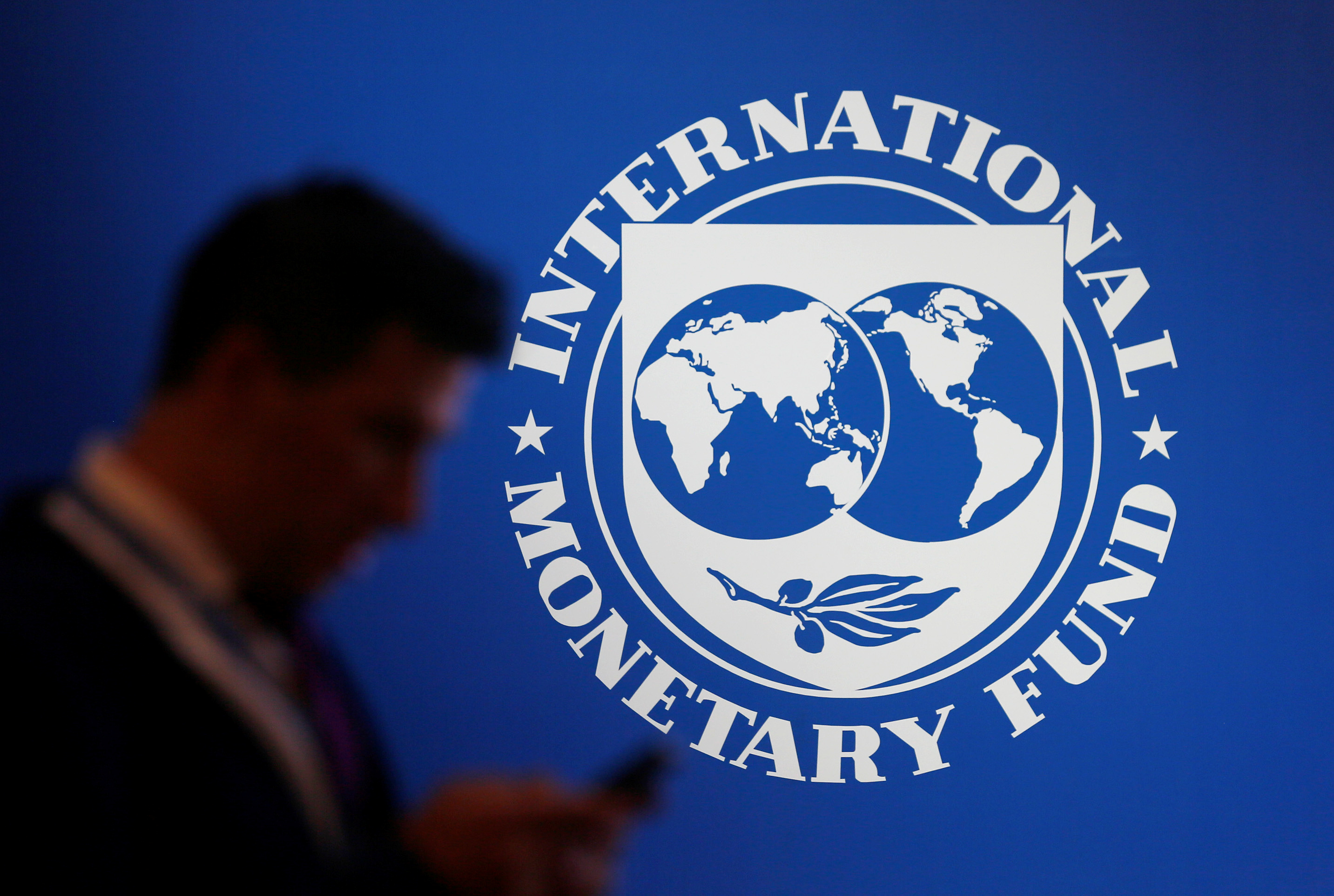[ad_1]

A participant stands near a logo of IMF at the International Monetary Fund – World Bank Annual Meeting 2018 in Nusa Dua, Bali, Indonesia, October 12, 2018. REUTERS/Johannes P. Christo/File Photo Acquire Licensing Rights
WASHINGTON, Oct 4 (Reuters) – The U.S. should demand that China support debt restructuring for struggling poor and middle-income countries as a condition of changes to the International Monetary Fund’s shareholding formula, a former senior U.S. Treasury development expert said on Wednesday.
Nancy Lee, a former deputy assistant Treasury secretary who works at the Center for Global Development think tank, told reporters it was “reasonable” to insist that any country getting a bigger quota, or shareholding, in the IMF should also help countries return to sustainable debt.
U.S. Treasury Secretary Janet Yellen has said China, the world’s largest sovereign creditor, has been a roadblock to debt relief. U.S. officials have said China is unwilling to accept losses on loans unless private-sector creditors and multilateral development banks do the same.
IMF member countries will discuss the crisis lender’s shareholding structure at annual meetings in Morocco next week.
Major emerging market countries including China, India and Brazil have long wanted more voting power in the institution, and this is their first chance for a bigger share since 2010.
The U.S. is pushing instead for IMF member countries to agree to contribute more funds to boost lending firepower, but keeping the U.S.-dominated shareholding structure unchanged.
“If a country wants a larger share in the governance of the IMF, it should also aim to advance what the IMF goals are, which is helping countries finance growth paths and in a way that’s sustainable,” Lee said. “If a country is … not participating in that agenda, it is kind of hard to make the case that they need a larger quota.”
Lee said she agreed with the views expressed by the U.S. Treasury’s top international official, Jay Shambaugh, in a speech last month. A U.S. Treasury spokesperson did not immediately respond to a request for comment.
Shambaugh said it was important that “all countries – especially those that would see an increase in share – are respecting the roles and norms of the IMF and working to strengthen the international monetary system.”
Without naming China, he said this would include doing more on debt relief and providing more exchange rate transparency — longstanding Treasury criticisms of Beijing.
Reporting by Andrea Shalal and David Lawder; Editing by Andrea Ricci
Our Standards: The Thomson Reuters Trust Principles.
[ad_2]
Source link
